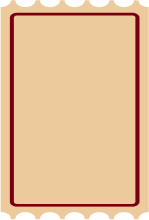Business law encompasses all other the laws which governs on how to run or form a business. It directs how to start, buy, sell manage or close any type of business. The given scenario of Mr. John reveals that a TV set purchased by him proved to be faulty after 3 weeks. The seller claimed that he will not be addressing any defects after the process of installation. Various provisions have been discussed in the report in order to help Mr. John. The report discusses about legal rules implying to sale of goods and supply of services. It further discusses about statutory provisions involved in transfer of property and possession. In the end, various product liability statutory provisions for faulty goods are discussed in the report.
Question 1
Legal rules on implied terms which are related to the sale of goods and supply of services
According to the case, Mr. John brought a TV set from a departmental store which was claimed to be of high quality, durable and value for money product by the manager. However, Mr. John discovered a flash and puffs of smoke coming out from the TV set after 3 weeks of its purchase. Therefore, out of his dissatisfaction from the purchase, he came to the departmental store to make complain against it. As the TV set is not of satisfactory quality, Mr. John can claim for replacement or repair according to the terms and conditions being signed at the time of purchase. According to section 13(1) of sale of goods act, 1979, a contract on sale of goods by description says that the goods being sold should match the description being provided by the seller to the purchases (Allen and et. al., 2016). Section 14 is relevant in the case which talks about goods should be satisfactory quality taking account of description, price and all the relevant circumstances. The product should match the following features when it is sold:
Fitness in all purposes for which the product has been sold
- Appearance and finish
- Free from minor defects
- Safety
- Durability
You Share Your Assignment Ideas
We write it for you!
Most Affordable Assignment Service
Any Subject, Any Format, Any Deadline
Order Now View Samples
Based on the above factors, it is judged whether the product being sold meet all the expectations or not. Discrepancy in any of the above factors lead to breach of contract resulting the right of the consumer to get replaced or repaired the product. Mr. John have faced two factors from the above, the product was not free from defects and it doesn't prove to be durable. It results to the breach of contract of sales of goods.
According to section 11 of supply of goods and services act, 1982, there are various services that are attached when a consumer purchase a product which comes under certain category (Babu and et. al., 2017). Some services included with the goods are:
- Repair of goods where parts can be replaced
- Installation
- Warranty for specified years
- Replacement in case of irreparable goods
Mr. John is facing problems with repair and replacement of TV set as he signed a document which claims that the store doesn't take any responsibility for malfunction of the product supplied and installed. However, according to the consumer right act 2015, the consumer gets protection if the store has not followed basic rules and regulations of sale and supply of goods. It is mandatory for the manufacturers and sellers to ensure that the product is safe and fit for purpose (DiMatteo and et. al., 2016). It is the duty of the seller to make the customer aware about the complication attached to it. It has not been conveyed to the consumer then it comes under the legal obligations where he is liable to replace the product or give the money back to the customer. The main responsibilities of seller to ensure that the product is safe by:
- Warning consumers about the product's potential risks
- Providing relevant information to help the consumers understand the risks
- Monitoring the safety of the product.
- Taking necessary actions if a safety problem is found in the product
All the sellers are required to follow the above basic rules of risk and safety assessment. Flash and puff of smoke was notices in the TV set of Mr. John which clearly confirms that the basic safety regulations were not considered and potential risk was not conveyed to him. Therefore, even if Mr. John had signed that document saying that the seller is not liable for any malfunction, he is liable to replace the TV set or refund the paid amount to him.
Consumer Rights Act, 2015 protects the rights of the customers by proving them with appropriate solution. In the case scenario, CPA will come to rescue Mr. John and take necessary actions required against the seller.
Question 2
Advice to Mr. John on the statutory provisions on transfer of property and possession
Transfer of property plays an important role as it is not merely an obligation of to pass the property to the buyers but it affects wide range of rights of buyers and sellers (Fenwick and et. al., 2014). The first right says that the possession of goods is required to be transferred and no kind of pending formalities are left to transfer the legal title to the goods to the customer. Section 20 of the act illustrates that the risk of the good passes with the transfer and buyer only have to bear the liability and pay for the goods. However, the applicability of section 20 differs according to the type of goods. There are various rules of transfer of goods:
- Transfer of goods as per the quality standard
- Transfer the possession on time
- Delivery by the seller on time.
There is an implied contract between buyer and seller that satisfactory quality is expected from the seller on the delivered goods (Gordon and et. al., 2016). If the buyer found degraded quality in any circumstances then it has the right to transfer the goods back to the seller and ask for a refund. In case of the consumer getting harmed while using that good then he has the right to approach the court for legal settlement of the issue. The seller is required to abide by the following rules while transferring the possession of goods. Some rules are listed below:
When goods are supplied with the reference of some model presented in the showroom before entering into a contract then it required that the goods should match the quality of the goods which was shown to the buyer (Heminway and et. al., 2013).
- The seller is required to do the installation properly if it has been promised from his side.
- All the potential risks are required to be conveyed to the buyer before entering into the contract.
- A reasonable amount of warranty is required to be given. The customer have right to return or replace that product in that specified time duration.
Consumer Rights Act,2015 comes to rescue if any of the above rules are not followed by the seller or manufacturer. The act has been split in following provisions favouring the case of Mr. John:
The buyer has the right to reject the goods in first thirty days of the goods being supplied. The consumer has the right to return the goods and receive a refund if any of the above mentioned rules are not followed by the seller (Jones and et. al., 2017). The trader himself is responsible for the cost of collecting goods from the buyer's place. In the given scenario, since only 3 weeks have been passed from that of sales have been performed, Mr. have the right to return the goods and get the refund. If the manager does not abide the rules then Mr. John have right to sue the departmental stores on ground of delivering defective product to him.
The trader is required to provide repair and replacement for reasonable time period where any insignificant cost is attached for the customer (Lieberman and et. al., 2016). The decision of replacement or refund lies in the fact that which can be performed easily and proportionately. In this case, Mr. John have right to get the product replace or refund from the trader or else he has the right to approach to consumer court.
The invalidity of the contract lies in the severity of the issue. Mr. John experienced safety issues with new TV set and because the severity is high, he can approach to the court. Misrepresentation of facts while transferring possession to the buyer attracts the liability of seller towards the buyer (Lyons and et. al., 2016). Mr. John have not been told about the degraded quality of the product. Hence, the seller is liable to pay compensation to the buyer for the damages occurred.
Question 3
Statutory provisions on buyer's and seller's remedies in sale of goods contracts
The remedies are provided to the consumer in case of breach of contract from the side of the trader and that breach has caused loss or damage to the consumer. It happens in the case of termination or compensation of the contract. The seller is required to transfer the goods under the stated terms and conditions at the time of the contract (Orlov and et. al., 2016). The product must fit the purpose and possess the standardized quality. Some examples of breach are:
- Provision of faulty goods
- Poor quality
- Dangerous installation of the services
- Failure to deliver the goods on time
Doesn't abide by the terms and conditions of the contract between the two parties. According to Consumer Rights Act, 2015 there are various remedies that are provided to the aggrieved party in case of breach of contract between the seller and the buyer.
Right to reject the goods within 30 days and get refund from the seller. In case of Mr. John, he has the right to get refund of TV set because purchase have been made only 3 weeks back.
The right to get it repaired or replaced within 30 days at the cost of company. No cost will be exhibited by Mr. John in terms of material or labour.
Right to reject the goods or get the goods at reduced price if acceptable replacement or repair has not been performed by the trader within 30 days.
The buyer have right to sue the seller if damages are not been addressed satisfactorily by the seller. In this case, consumer courts come to rescue and protect the rights of consumers.
The remedies are based on the damages that have been occurred and experienced by the buyer. The reasonable amount of steps are required to be taken by the seller or by the court in order to reduce its incidence (Percival and et. al., 2013). The compensation is required to be in monetary terms and compensation amount is decided with mutual understanding of both the parties. If both the parties do not reach on any conclusion in terms of compensation then both parties have right to progress towards the court. The compensation is decided by the court after hearing the perspective of each party (Consumer rights act. 2015). The buyers have right to reject the goods which is not as per contract description. According to the remedies provided by section 32, Mr. John can reject the TV set and can ask for compensation from the seller. However, if the seller cures the defect of that TV set, the buyer is required to keep it and do not demand any compensation from seller's side.
There are two ways to settle the dispute between Mr. John and the seller of that departmental store. They are:
- Out of court settlement
- Consumer court settlement
In case of out of court settlement, the compensation can be decided by Mr. John and the seller with mutual understanding. Possible remedies can be, replacement of TV set, repair of TV set from the side of seller and cost will be bore by him only, compensation in terms of money, reduced price of the TV set etc. If Mr. John and seller are not able to decide the compensation criteria from mutual understanding, then, Mr. John can go for consumer court settlement where, an appeal is required to be made by him and based on the dates of the hearing, both the parties visit the court in order to find out the compensation amount (if any).
Question 4
Applicable product liability statutory provisions for faulty goods
Manufacturers, distributors, sellers are held responsible for any injury that a product cause. An action can be brought under Consumer Protection Act in case of damage being caused to the person or his private property (Posner and rt. al., 2014). The consumer who have experienced the damages can sue the other party for damages caused. Compensation can be asked by Mr. John in the given scenario. Consumer protection has laid down strict rules for the manufacturers who manufactures these kinds of defective products and for the sellers who sell defective products. It shows the negligence of the manufacturer while preparing the product. In order to get compensation it is required to prove that the product is defective. As the producer is liable for the defects, there is no financial limit being fixed by the Consumer Protection Act on total liability of the producer. The liability can also be imposed on the person who holds the copyright or is using the name of the trademark for selling purpose.
When compensation is decided on defective products, the following points are taken into consideration:
- Purpose for which the product was marketed (Sales of goods act. 1979)
- Any statutory warning or instructions on the production
- Time of supply
The possible defendant may not be only the manufacturer. It includes designers, installers, assemblers, packers, retailers, repairers and every other person who is connected to the product. The user will be considered as aggrieved party if he is not aware of the fact that the product had some faults. If the buyer is aware and conveyed that the product he is purchasing carry some defaults then he will not be considered as an aggrieved party. The negligence can be contributory when both the parties are responsible for the damages. In case of Mr. John, he was not aware of the defect that TV possess, then he has the right to claim his damages from the manufacturer, seller, installers and all the other parties that are involved in the supply of that product. Mr. John can also opt for out of court settlement if the seller agrees to do so.
Conclusion
From the above report, it can be articulated that. The TV set he purchased from a departmental store was claimed to be defective and Mr. John who is an aggrieved party in the case scenario have the right to claim compensation from the seller. The report has suggested various regulatory and statutory provisions in the favour of Mr. John. He can demand for repair or replacement of the product as it has been only 3 weeks since he purchased that T V. Mr. John can also file an appeal in consumer court under the provisions of Consumer Protection Act, 2005 where decision lies in the hands of the judge after listening to the situations of both the parties. Both the parties can also go for out of court settlement where Mr. John and seller can decide the compensation amount by mutual understanding. For assistance in understanding legal rights and options in such cases, Mr. John might consider taking assignment help Australia from legal experts skilled in consumer protection laws and dispute resolution mechanisms.
References
- Allen, W. T., and et. al., 2016. Commentaries and Cases on the law of business organization. Wolters Kluwer law & business.
- Babu, R. R. and et. al., 2017. Law and Business: Comparative Perspectives. In Management Education in India. (pp. 159-181). Springer Singapore.
- DiMatteo, L. A. and et. al., 2016. International Business Law and the Legal Environment: A Transactional Approach. Routledge.
- Fenwick, M. ed. and et. al., 2014. Networked governance, transnational business and the law. Springer.
- Gordon, J. M. and et. al., 2016. Business Law: An Introduction.
- Heminway, J. M. and et. al., 2013. Teaching Business Associations Law in the Evolving New Market Economy.
Amazing Discount
UPTO55% OFF
Subscribe now for More
Exciting Offers + Freebies










